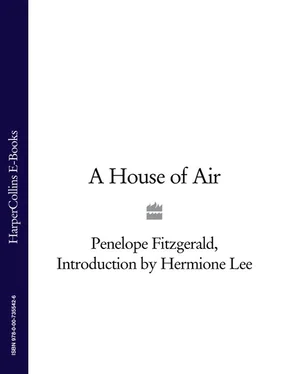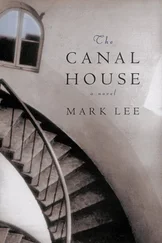I am grateful for the assiduity, grace under pressure, support of and devotion to Penelope’s writing, and her memory, of my collaborators and friends: Mandy Kirkby and Chris Carduff.
PART I Master-Spirits
JANE AUSTEN Emma’s Fancy
An introduction to Emma
Emma (1814—15) is the last novel Jane Austen wrote before, at the age of forty, she began to feel the warning symptoms of her last illness. If a writer’s career can ever be said to have a high summer, this was hers.
Emma Woodhouse, we are told, is handsome, clever, and rich, and has lived nearly twenty-one years in this world ‘with very little to disturb or vex her.’ Feeling the muted irony of this, we know that quite soon something will happen to distress her. It will be due partly to her own temperament—‘a disposition to think a little too well of herself’—partly to her upbringing in quiet Highbury.
As in Pride and Prejudice and Mansfield Park , visitors arrive to unsettle the neighbourhood, but, unlike Elizabeth Bennet or Fanny Price, Emma meets them from a position of undisputed authority. Her reckless desire to manage and control is felt as the result of confining a keenly energetic character within a small space. She is, as Jane Austen is careful to show, very well-adapted to her life. She is the capable manager of a not very easy household and estate (which seems to include a piggery). She is generous and realistic towards the poor, a patient visitor to the cottagers, not expecting gratitude. But this strong-minded, affectionate young woman happens also to be an ‘imaginist,’ ‘on fire with speculation and fancy.’ One might feel, in fact, that she has the potentialities of a best-selling novelist.
To Jane Austen, however, the contemporary of Byron, ‘that very dear part of Emma, her fancy,’ represents a danger of a specific kind. It is shown as the enemy not of reason, but of truth. It tempts Emma to see the blooming, commonplace Harriet as the heroine of a romance, and leads her on through absurd schemes—when she pretends, for instance, to lose the lace of her ‘half-boot’ so that Harriet and Mr Elton can walk on together—to the moment when, overcome with disappointments and disillusions, she cries out, ‘O God! that I had never seen her!’
Jane Austen’s novels are constructed on a delicate system of losses and gains, or retreats and advances. She undertakes, I think, to show that Emma’s release of her creative imagination—in spite of her intervals of remorse and repentance—gradually becomes more and more dangerous, not only to others, but to her own nature. Undoubtedly she was worried about this new heroine ‘whom nobody but myself will much like.’ To Mr Clarke, the librarian of Canton House, with whom she was corresponding over the question of dedicating Emma to the Prince Regent, she wrote: ‘I am strongly haunted with the idea that to those readers who have preferred “Pride and Prejudice” it will appear inferior in wit, and to those who have preferred “Mansfield Park” inferior in good sense.’ ‘Haunted’ is a strong word, and she does not sound as though she is making a conventional disclaimer. Rather it is as if she knew she was taking a risk, the risk, that is, of letting Emma go too far. The great Harriet undertaking is, after all, intended for the benefit of Harriet. It has ‘the real good will of a mind delighted with its own ideas.’ Robert Martin, Harriet’s suitor, must be got rid of and ‘Mr Elton was the very person fixed on by Emma for driving the young farmer out of Harriet’s head.’ The very strength of ‘fixed’ and ‘driving’ seem to echo her determination to make the unreal real. But the fact remains that her object was to ‘better’ her unassuming friend and her regret—while it lasts—is very real, ‘with every resolution confirmed of repressing imagination all the rest of her life.’ By the time the second movement of the novel begins, her imagination—unrepressed—has taken a turn for the worse. She is paying a call on the talkative, poor-genteel Miss Bates. M iss Bates is expecting a long visit from her niece, Jane Fairfax, who is leaving her post as governess to the daughter of old friends. This daughter was recently married to a Mr Dixon. ‘At this moment, an ingenious and animating suspicion enter[ed] Emma’s brain with regard to Jane Fairfax [and] this charming Mr Dixon.’ It is the word ‘animating’ that betrays Emma here. The unkind, even heartless, and quite unfounded notion is like a breath of new life to her. How can she go so far as to share it, as an amusing confidence, with Frank Churchill? What has become of her greatest virtues, compassion and generosity? This, unlike her first fantasy, is not intended to benefit anyone. Indeed, it can only cause immeasurable harm, as Emma not only deceives herself but is in turn deceived by Frank, the gleefully mischievous intruder.
Something is painfully wrong. We realize, certainly by the evening of the box-of-letters game at Hartwell, that Emma is hardly herself. This appears during the day’s outing to Box Hill, a harmless party of pleasure to which only Jane Austen could have given such chilling significance. When Emma makes her cutting remark, her openly rude put-down, to Miss Bates, it is as though the heavens—ironically clear and fine—might fall. Miss Bates ‘did not immediately catch her meaning; but when it burst on her, it could not anger, though a slight blush showed that it could pain her.’ Poor Miss Bates, always to be borne with, like some gentle natural force, is a moral test for the whole of Highbury, who are in a kind of neighbourly conspiracy to make her feel wanted. Emma, of all people, fails the test. ‘It was badly done, indeed!’ says Mr Knightley. And Emma, who has a great capacity for suffering, has to bear not only this reproach, but, later on, Miss Bates’s ‘dreadful gratitude.’ Her intrigues have led her farther and farther away from ‘everything that is decided and open.’ Not one of the heroines of Jane Austen’s other novels is so deluded. None of them is so obstinate. None of them, certainly, makes such a brutal remark. And yet Jane Austen is successful. We love Emma, and hate to see her humbled. The very structure of the book asks us to compare her with Jane Fairfax. Jane is faultless, delicate, unfortunate, and mysterious, but we do not, even for a moment, feel for her as we do for Emma. We have to watch her struggle. She has ‘two spirits,’ Mr Knightley reminds her, the vain and the serious. The two spirits are self-will and conscience, and Emma, in the last instance, has to battle it out for herself.
She has, of course, a safe guide in Mr Knightley. I once asked some students for an alternative title to the novel, and they suggested ‘Mr Rightly.’ He is ‘a sensible man about seven—or eight-and-thirty’ (much more convincing than if we knew exactly which). He has knowledge, experience, and the courage to speak out. He acts, while others talk. At the dinner party at the Westons’, when all are discussing the fallen snow and the impossibility of driving back, Mr Knightley goes out to have a look for himself, and is able to answer ‘for there not being the smallest difficulty in their getting home, whenever they liked it.’ Frank Churchill, the weak romantic hero, rescues Harriet from the gypsies, but it is Mr Knightley, when she has been grossly humiliated by the Eltons, who asks her to dance. And yet he too has something to learn. Even before Frank’s long-delayed arrival in Highbury, the sanely judging Mr Knightley has taken unreasonably against him, or rather against Emma’s interest in him. ‘“He is a person I never think of from one month’s end to another,” said Mr Knightley, with a degree of vexation, which made Emma immediately talk of something else, though she could not comprehend why he should be angry.’ Nor can he.
Читать дальше












